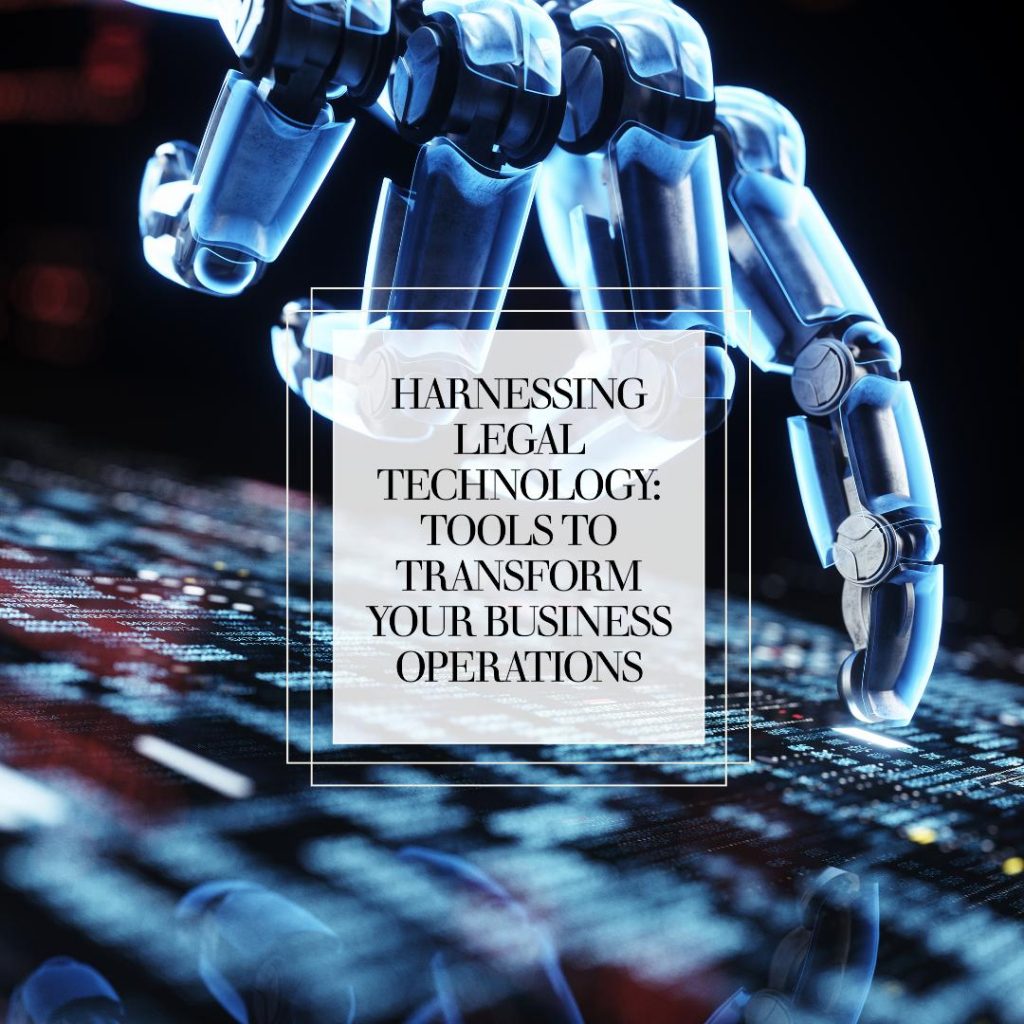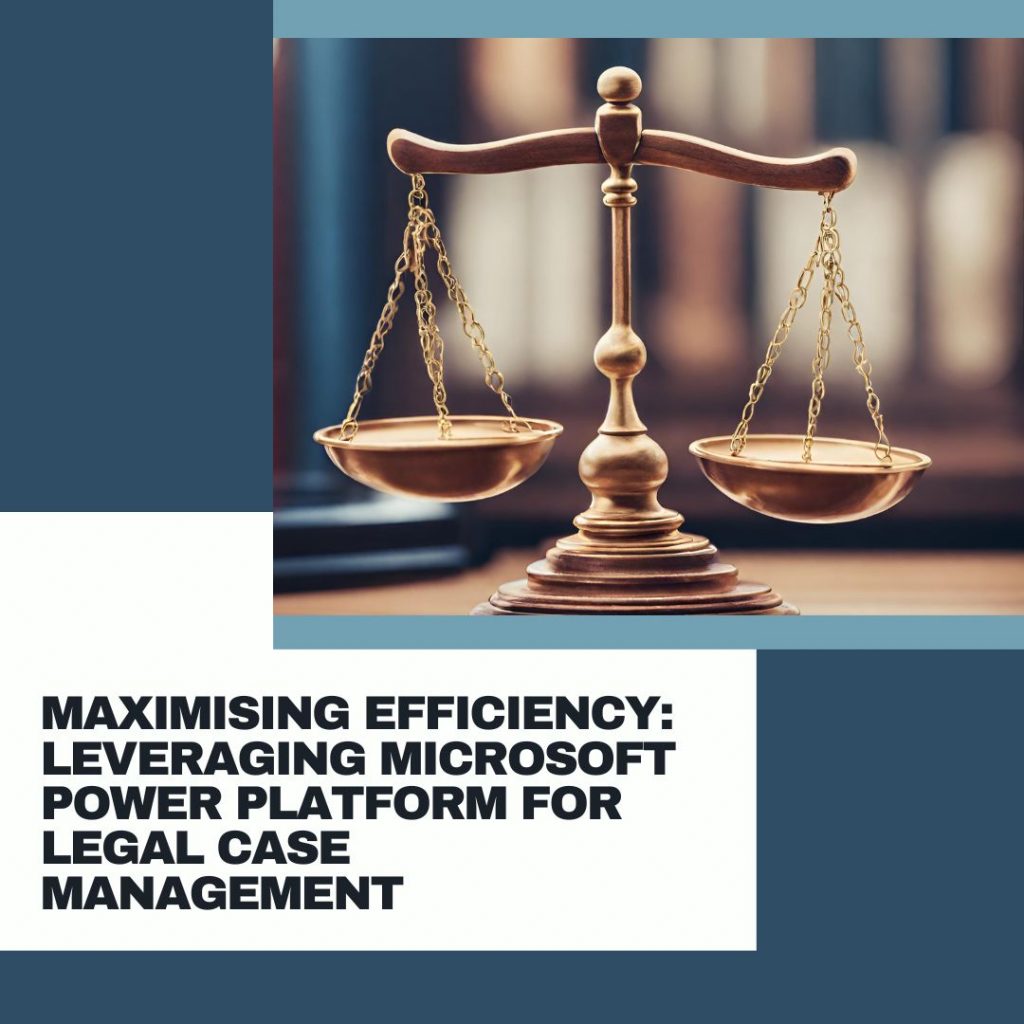Legal operations are undergoing a significant transformation, driven by the increasing need for efficiency, collaboration, and data-driven insights. Legal teams today face a complex landscape, juggling contract management, compliance, internal requests, and a host of administrative tasks. To keep up with the demands of modern business, legal professionals can turn to technology—one of which is the Microsoft Power Platform—to streamline operations, reduce manual workloads, and make better decisions based on real-time data.
At LegalCloud, we’ve seen how the Microsoft Power Platform, which includes Power Apps, Power Automate, Power BI, and the Copilot AI functionalities integrated into these tools, can revolutionise the way legal teams work. Let’s explore how these tools can transform legal operations, making it more efficient, agile, and insightful.
What is the Microsoft Power Platform?
Before diving into the specifics, here’s a brief overview of the Microsoft Power Platform:
- Power Apps: Allows you to build custom apps tailored to your specific legal needs, without requiring extensive coding knowledge. These apps are mobile-friendly and easy to deploy across your organisation.
- Power Automate: A workflow automation tool that connects your apps, data, and services to automate repetitive tasks and workflows, saving your team significant time and effort.
- Power BI: A robust analytics tool that helps you turn complex data into actionable insights through interactive dashboards and visualisations.
- Copilot in Power Platform: Copilot, Microsoft’s AI-powered assistant, enhances Power Platform tools by assisting with tasks like drafting documents, generating insights from data, and improving overall workflow efficiency—all through intuitive natural language processing.
Let’s break down how these tools can make legal operations smarter and more efficient.
1. Automating Routine Legal Processes with Power Automate
One of the most time-consuming challenges legal teams face is managing repetitive tasks—whether it’s reviewing contracts, responding to internal requests, or ensuring compliance. Power Automate can help by automating these processes, reducing manual effort, and streamlining workflows.
Practical Use Case: Contract Review and Approval
Legal teams often spend a great deal of time reviewing and approving contracts. With Power Automate, you can create an automated workflow that routes contracts to the appropriate team members based on predefined criteria, such as contract value or complexity. The tool can also send automated reminders to stakeholders to ensure that contracts are reviewed on time and then store approved contracts in SharePoint for easy retrieval.
This automation not only speeds up the process but also minimises the risk of human error.
Practical Use Case: Legal Request Intake
Managing legal requests from various departments can be overwhelming. Power Automate can help by automating the intake and triage of these requests. For instance, an automated form can be used to collect relevant details about each request and route it to the appropriate legal team member for action based on the type of request and urgency.
2. Building Custom Legal Apps with Power Apps
Legal teams often need unique solutions that aren’t readily available in off-the-shelf software. Power Apps allows legal professionals to quickly build custom apps without needing to rely on IT departments or coding experts.
Practical Use Case: Matter Management System
For example, a legal team could build a custom matter management app that tracks legal cases, documents, and deadlines. This app can integrate with existing data sources, such as SharePoint or your contract management system, ensuring that all information is centralised and easy to access. With this custom app, legal teams can better track case progress and ensure that nothing falls through the cracks.
Practical Use Case: Contract Template Management
You can also build an app to manage contract templates. Legal teams often need consistent, approved templates to ensure compliance and reduce risks. With Power Apps, you can create a system where legal staff can access the latest contract templates, generate contracts from these templates, and route them for approval—all from a single, intuitive interface.
3. Gaining Actionable Insights with Power BI
Legal teams generate and manage a large amount of data, from contract lifecycles to litigation outcomes. Power BI enables legal teams to turn this raw data into actionable insights, allowing for better decision-making and resource allocation.
Practical Use Case: Compliance Monitoring
By pulling data from multiple sources, such as SharePoint and your legal management systems, Power BI can create dashboards that help you monitor compliance across different jurisdictions or business units. With real-time insights, legal teams can quickly spot potential compliance risks and address them before they escalate.
Practical Use Case: Litigation Analytics
For teams handling litigation, Power BI can be used to analyse case outcomes, settlement amounts, and legal expenses. This allows legal professionals to identify trends, manage legal spend, and optimise their strategy for future cases.
4. Enhancing Efficiency with Copilot AI Features
The Copilot functionality embedded within the Power Platform is changing the way legal teams can work by providing AI-driven assistance in various tasks. Unlike traditional chatbots, Copilot goes beyond responding to FAQs—it actively assists in generating documents, analysing data, and creating workflows, all through natural language queries.
Practical Use Case: Drafting Legal Documents
Imagine needing to draft a legal document quickly. Instead of starting from scratch, Copilot can assist by suggesting initial drafts based on past contracts or documents stored in your system. You can provide specific instructions (such as the type of contract or clauses needed), and Copilot will generate a draft that you can review and customise, drastically reducing drafting time.
Practical Use Case: Workflow Optimisation
Copilot can also help optimise legal workflows. For example, by analysing data from previous workflows, Copilot can suggest more efficient processes for handling legal requests, flagging any bottlenecks or inefficiencies along the way. This means your workflows become smarter and faster over time.
Practical Use Case: Analysing Legal Data
When analysing legal data in Power BI, Copilot can help by interpreting complex datasets and providing natural language summaries of trends, risks, or key performance indicators. Instead of sifting through dashboards manually, legal teams can simply ask Copilot questions like, “What were our highest litigation costs last quarter?” and receive instant, data-driven answers.
5. Seamless Integration with Microsoft 365 and Other Tools
One of the key advantages of the Microsoft Power Platform is its seamless integration with other Microsoft 365 tools, such as Outlook, Teams, and SharePoint. This integration enhances collaboration and efficiency, making it easier for legal teams to manage operations across platforms.
Practical Use Case: SharePoint for Document Management
By combining Power Automate with SharePoint, legal teams can create workflows that automate document management. For example, when a new contract is submitted, Power Automate can save it to the correct SharePoint folder, notify relevant team members via Teams, and ensure that version control is managed seamlessly within SharePoint.
Practical Use Case: Teams for Real-Time Collaboration
With the rise of remote work, Teams has become a central hub for collaboration. The Power Platform integrates directly with Teams, allowing legal teams to automate tasks and access custom apps without leaving the platform. Whether it’s receiving automated updates on contract approvals or sharing reports generated in Power BI, Teams keeps everything centralised and efficient.
Conclusion: The Future of Legal Operations with the Microsoft Power Platform
The Microsoft Power Platform is revolutionising the way legal teams operate, offering tools that streamline workflows, automate repetitive tasks, and provide real-time insights. With the added AI capabilities of Copilot, legal teams can now draft documents, analyse data, and optimise workflows more efficiently than ever before.
Whether you’re just beginning your journey with legal technology or looking to enhance your existing operations, the Microsoft Power Platform provides a scalable, user-friendly solution that transforms the way legal professionals work. At LegalCloud, we’re dedicated to helping legal teams leverage these powerful tools to improve productivity and drive success.
Ready to Transform Your Legal Operations?
Discover how the Microsoft Power Platform and AI-powered tools like Copilot can revolutionise your legal team’s operations. From automating workflows to gaining actionable insights, the possibilities are endless.
Want to see how these solutions can work for your organisation? Schedule a personalised consultation with our experts and unlock the full potential of the Microsoft Power Platform.
Take the first step towards a more efficient, data-driven legal team today!

